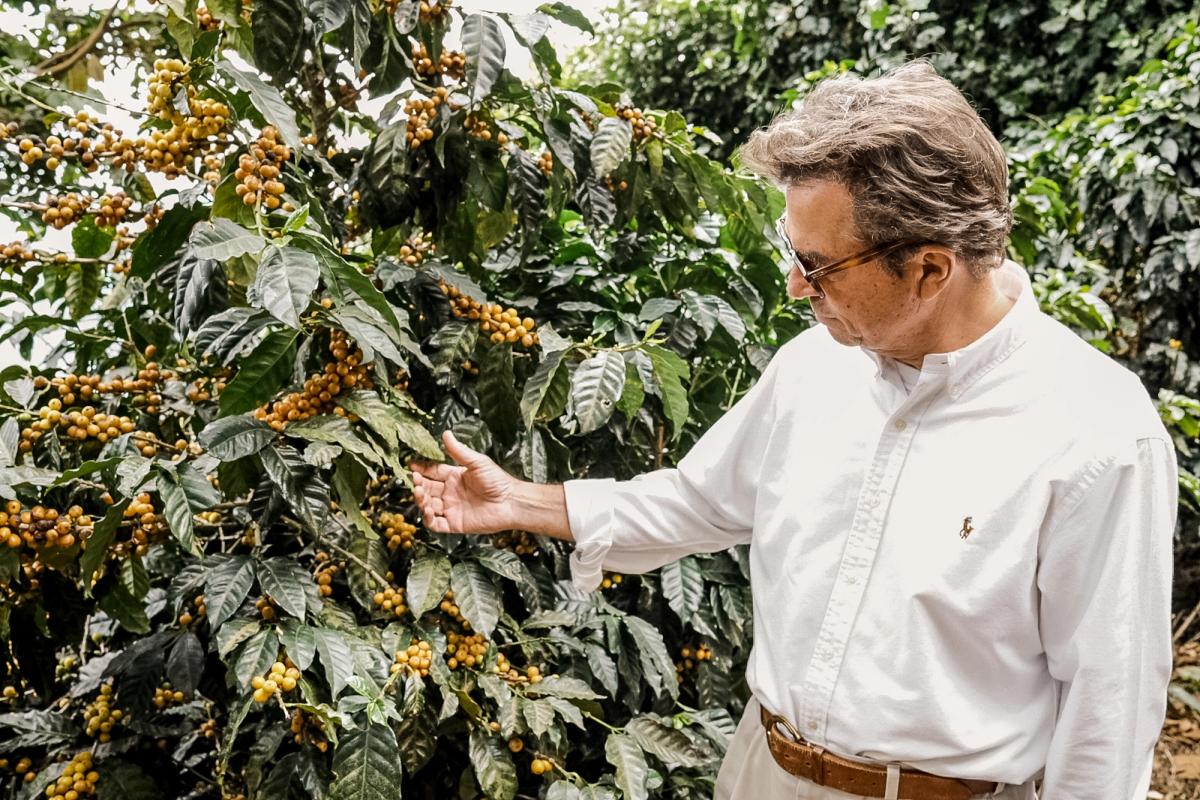
In the mid-1980’s Carlos Batres was living in London representing El Salvador at the International Coffee Organization. During this time the coffee market was regulated by quotas. The quota system temporarily broke down, due to the 1985 drought in Brazil, and Carlos went back to live in El Salvador representing Goldman Sachs and General Foods Maxwell House. During this time Carlos also inherited a farm and happened to come across the Pacamara variety which had just been released by the El Salvadorian government, who had been working on crossing the pacas and maragogipe varieties since the 1960s. Carlos happened to be in need of seed stock with which to plant his newly obtained farm and the pacamara variety was an interesting prospect.

The laboratory had achieved its breeding goal of getting the productivity of the pacas (a spontaneous bourbon mutation discovered in El Salvador in the 1940’s) with the large size of the maragogipe (a spontaneous typica mutation discovered in Brazil in the 1870’s). Carlos Batres foresaw its marketing potential and bought most of the material they had available in 1987, 1988, 1989, and 1990 to plant and develop on Montecarlos. He produced the world’s first commercial pacamara crop in 1992-93 and started marketing it in Europe based on its size, and not the cup, since the specialty movement had not yet picked up in the world. The coffee was sold primarily in France and Italy, where it was marketed as a substitute for maragogipe, which had practically disappeared from the market.
By the late 1990s and early 2000s the specialty movement was taking shape in the US and the pacamara variety had started to gain broader recognition. However, it was not until Starbucks brought it into the market as a Montecarlos “Black Apron Exclusive” in 2004 that the variety became well known. At the same time, specialty coffee shined another spotlight on the variety in the 2004 El Salvador Cup of Excellence. Since then, Carlos has shared pacamara trees with other farmers in El Salvador. He is rightfully very proud of his role as one of the variety’s main pioneers and at Montecarlos, it continues to be the flagship variety.
2023 marks the sixth consecutive year of Passenger’s ongoing foundational partnership with Carlos and his partner Julie. As always, we select multiple lots from the harvest, each an example of a distinct arabica variety. A bourbon from the farm is currently presented as our Foundational Montecarlos offering and we are proudly adding the pacamara, as well as a gesha selection, to the Education Lot menu at the present time. All of these selections have met or surpassed the quality we’ve come to expect based on past harvests from Montecarlos. While we’ve historically released the gesha and pacamara varieties on our Reserve Lot menu, this year we’ve decided to draw attention to these two distinct and storied varieties by featuring them as part of our Education Lot menu. As our Education Lot menu in part aims to feature unique stories that highlight plant genetics, it seemed fitting that we put additional focus on these special variety separations as we continue to define our ongoing partnership with Montecarlos and the Batres family.